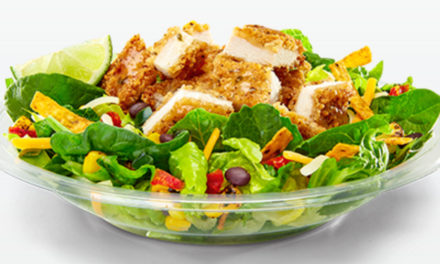When it comes to achieving fitness goals and building muscle mass, protein intake plays a crucial role. Protein supplements have gained popularity among fitness enthusiasts and athletes due to their convenience and ability to support muscle recovery. However, the debate between eating protein-rich foods and consuming protein shakes continues. In this article, we will explore the advantages and disadvantages of both options to determine which one is better suited for your fitness journey.
The Benefits of Eating Protein:
Eating protein-rich foods offers several advantages that make it a viable option for meeting your protein requirements:
a. Nutrient Diversity: Whole foods like lean meats, poultry, fish, eggs, legumes, and dairy products not only provide protein but also contain essential vitamins, minerals, and other nutrients vital for overall health and well-being.
b. Satiety and Digestion: Solid food sources of protein tend to be more filling and take longer to digest, promoting a feeling of fullness and reducing the likelihood of overeating.
c. Slow Release of Nutrients: Whole food proteins are usually accompanied by fiber, fats, and carbohydrates, which slow down the digestion process and result in a gradual release of nutrients into the bloodstream.
2.The Advantages of Drinking Protein:
Protein shakes and supplements offer their own set of benefits that make them a popular choice among fitness enthusiasts:
a. Convenience and Portability: Protein shakes are quick and easy to prepare, making them a convenient option for individuals with busy lifestyles or those who are always on the go.
b. Rapid Absorption: Protein powders are typically designed to be rapidly absorbed by the body, allowing for quick delivery of amino acids to the muscles, which aids in post-workout recovery.
c. Customizable Nutrition: Protein shakes come in a variety of flavors and formulations, allowing you to tailor your nutritional intake to meet specific goals, such as weight loss or muscle gain.
3. Making an Informed Choice:

Protein: Eat or Drink? Making the Best Choice for Fitness and Health.
Deciding whether to eat protein or drink it ultimately depends on your individual needs and preferences. Consider the following factors when making your decision:
a. Dietary Preferences: If you enjoy the taste and texture of whole foods and have no dietary restrictions, incorporating protein-rich sources into your meals can provide a well-rounded approach to nutrition.
b. Convenience and Timing: If you struggle with time constraints or find it difficult to consume enough protein through regular meals, protein shakes can be a convenient and time-saving option, especially around workouts.
c. Personal Goals: Understanding your fitness goals, whether it’s building muscle, losing weight, or maintaining overall health, can help guide your decision. Consulting with a registered dietitian or nutritionist can provide personalized advice based on your specific goals and needs.
4. Tips for Maximizing Protein Intake:
Regardless of whether you choose to eat protein or drink it, optimizing your protein intake can help you achieve your fitness goals. Here are some tips to consider:
a. Calculate Your Protein Needs: Determine your daily protein requirements based on factors such as your weight, activity level, and goals. This can provide you with a target to work towards when planning your meals or selecting protein shakes.
b. Prioritize Whole Foods: Incorporate a variety of protein-rich whole foods into your diet, such as lean meats, poultry, fish, eggs, legumes, and dairy products. These sources not only provide protein but also offer additional nutrients that support overall health.
c. Combine Protein Sources: Mixing different protein sources can enhance the quality of amino acids you consume. For example, combining plant-based proteins (like beans or lentils) with grains (such as rice or quinoa) can create a complete protein profile.
d. Time Your Protein Intake: Distribute your protein intake evenly throughout the day to optimize muscle protein synthesis. Aim for a source of protein in each meal or snack to ensure a steady supply of amino acids.
e. Supplement Wisely: If you opt for protein shakes or supplements, choose reputable brands that undergo quality testing. Read labels to understand the ingredients and select products that align with your dietary preferences and goals.
f. Stay Hydrated: Remember to drink enough water throughout the day, as protein metabolism requires proper hydration. Water helps transport nutrients, aids in digestion, and supports overall bodily functions.
g. Consider Individual Tolerance: Some individuals may experience digestive discomfort or allergies to certain protein sources. Pay attention to how your body responds to different foods or supplements, and make adjustments accordingly.
5. Seek Professional Guidance:
For personalized advice on your protein intake and overall nutrition, it is beneficial to consult with a registered dietitian or nutritionist. They can assess your individual needs, help you develop a balanced meal plan, and provide recommendations tailored to your goals, preferences, and any specific dietary restrictions or health conditions you may have.
Conclusion:
In the debate between eating protein-rich foods and consuming protein shakes, there is no definitive answer as to which option is better. Both choices have their advantages and can be incorporated into a well-rounded approach to nutrition and fitness. Understanding your goals, dietary preferences, and lifestyle factors will guide you in determining the most suitable option for you. Whether you choose to rely on whole food sources or protein supplements, optimizing your protein intake and maintaining a balanced diet are essential for achieving your desired fitness outcomes. Remember, consistency, moderation, and individualization are key elements of a successful nutrition plan.
Related post:
Taylor Swift Announces Spectacular International Tour Dates for Summer 2024





